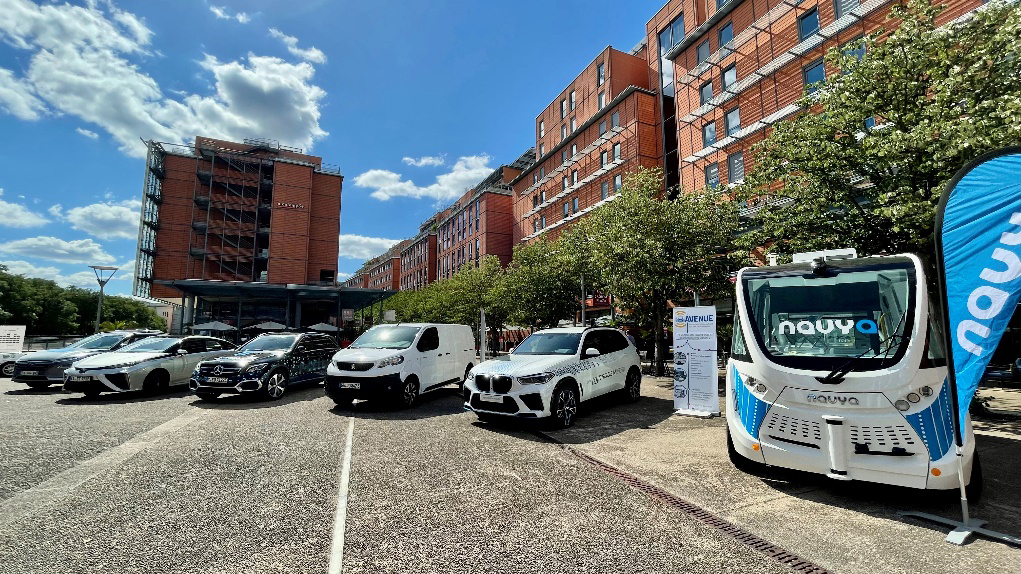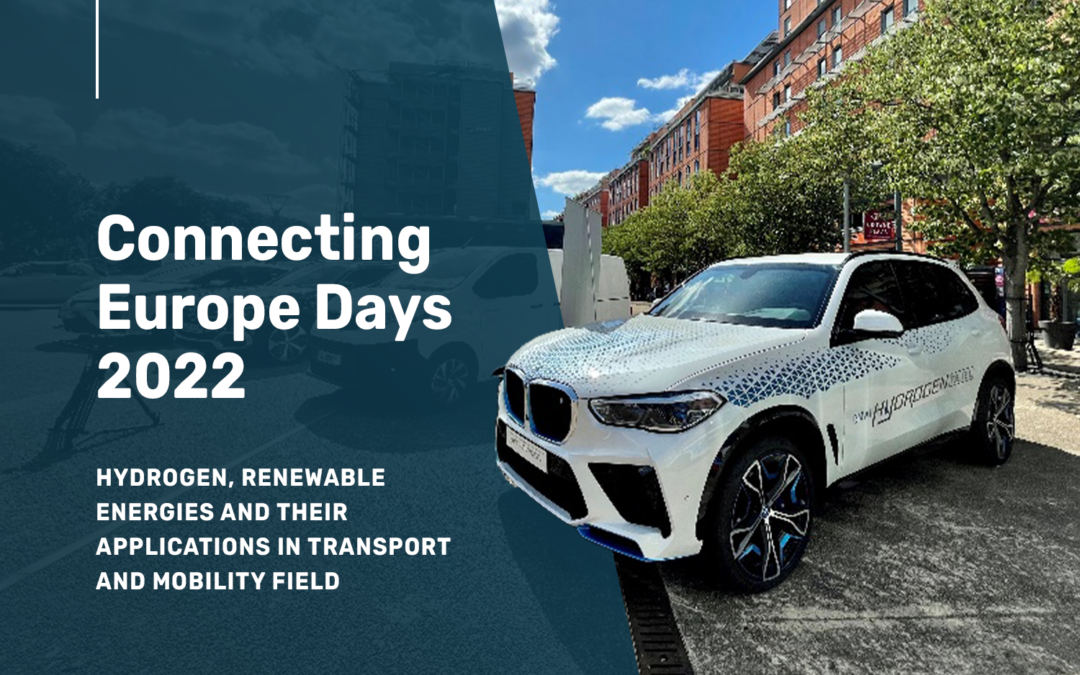Connecting Europe Days 2022 – Hydrogen, renewable energies and their applications in transport and mobility field
This year, Connecting Europe Days, Europe’s mobility flagship event, took place in Lyon, France, from 28 to 30 June.
Formerly known as the TEN-T Days, the event is co-organised by the European Commission and the French Presidency of the Council of the EU for the purpose of bringing together politicians, industry representatives and stakeholders to discuss the issues of transport and mobility, particularly their role in achieving the ambitious goals set out in the European Green Deal and the Sustainable and Smart Mobility Strategy.
With a wide range exhibition of EU-funded projects, the participants who came from all over the EU had the opportunity to see the state-of-the-art innovative ideas and concepts concerning the application of hydrogen and renewable energy towards the fields of transport and mobility.
In addition to the presentation of the new European Transport Corridors aimed at improving city-to-city, citizen and business connections; the event hosted a remarkable range of demonstrations of automated transport and alternative mobility vehicles, mainly fueled by hydrogen and electricity.

The event hosted an exhibition of innovative trucks, buses and cars, as a part of EU-funded projects striving towards fossil-free mobility involving, for example, fuel cell or electric battery solutions developed and produced by companies such as Renault, Audi, Tesla, Iveco, BMW, Volkswagen, Mercedes and others. There was also the completely self-driving bus of Navya and the electric car’s power-bank by Ep Tender.
In addition, last May the EU Commission presented the results of a pilot programme launched in 2003 that powered 27 hydrogen-fuel cell public buses in 9 European cities. The project has helped cast light on the viability of this emissions-free transportation means and has achieved remarkable milestones, such as:
- Design, construction and operation of safe hydrogen supply chains and refuelling stations;
- Efficient production and use of hydrogen;
- Infrastructure optimisation.
Based on these optimistic results and the progress already made in the field, the Commission has launched a new “Hydrogen for Transport” initiative to track the performance of 200 hydrogen-powered vehicles whose production will be co-funded by the EU over the next three years. This new series will include not only buses and trams, but also passenger cars, scooters and wheelchairs in both European and non-European cities (Beijing, Perth and Reykjavik).
Do you have an idea concerning hydrogen or electric powered vehicles for which you would like to apply for funding? Contact us to find out more!
For further details, please feel free to contact the EUFUNDINGHUB.
EU funding news and articles. All new articles in one place!
Do you want to read all the articles ahead ? Subscribe now and receive our online magazine each month!


Recent Comments